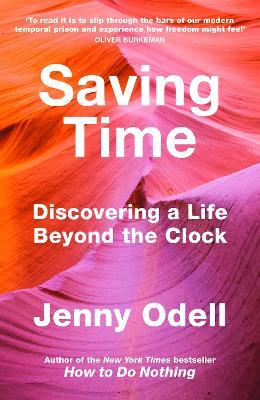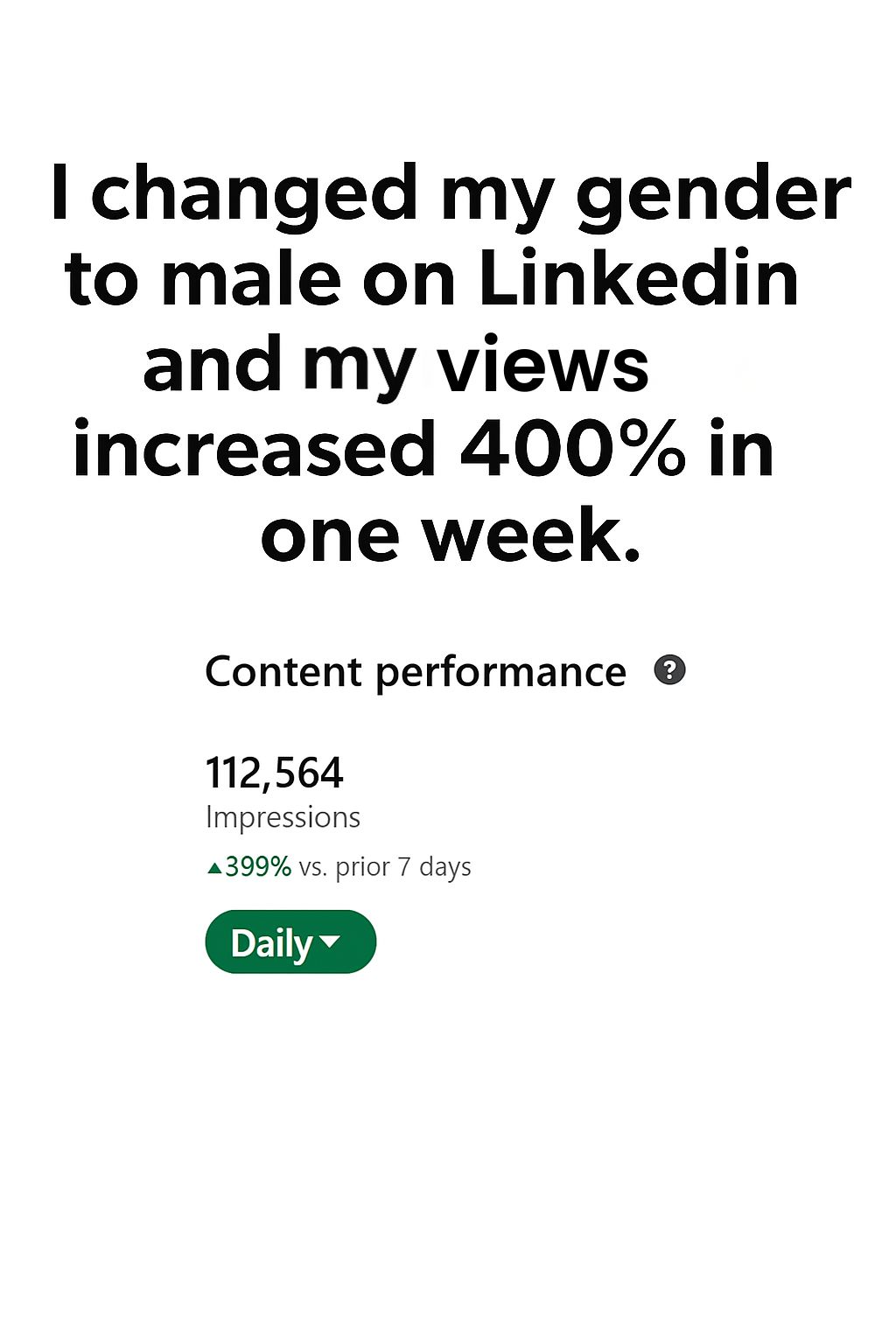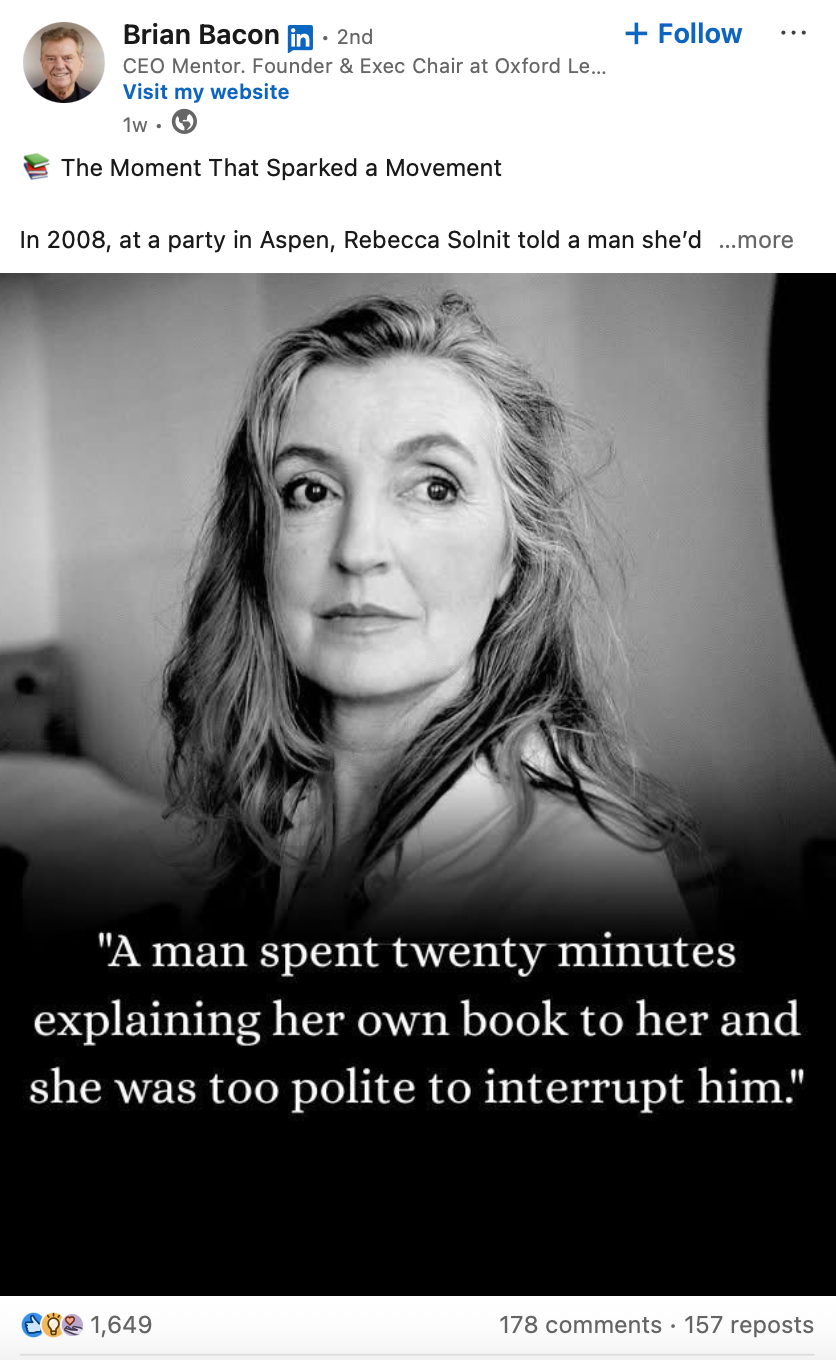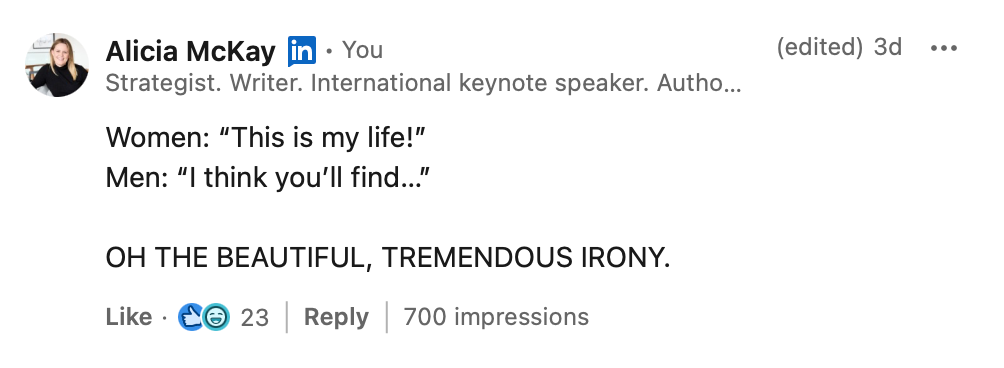Friday Flurry is a behind-the-scenes newsletter exclusively for paid subscribers.
In this Friday Flurry, we're talking about
- Time and how we suck at it
- Gender bias remaining embarrassingly prevalent.
This Friday Flurry is HEAVING, because my brain is, so hold on tight.
If you're not yet a paid subscriber, change that now. The juicy gossip and racy pics are hidden behind the paywall, (once I finish the intellectual musings fit for public consumption.)
Happy birthday to us
Cam and I both had birthdays this week. I turned 37, which is very young and sprightly (though 20 years of parenting is certainly showing up in my face, energy and body) while Cam hit the half a century milestone.
Existential birthday dread makes me think of a book I read years ago - When: The Scientific Secrets of Perfect Timing, by Dan Pink. I read it while training for my first marathon, only to discover that 29 (the age I was) is the second most common age of a first marathoner. The most common age is 39 - as in, "I want to run a marathon before I turn 40." This is what Pink calls a temporal milestone. People use birthdays to set goals and targets, the same way they use New Years to set personal improvement resolutions.
Temporal milestones
Temporal milestones are one example of our strange and inconsistent relationship with time. In a recent family holiday, flying across the international date line, my ten year old was baffled we could lose or gain a day so easily. Not only are boundaries of time malleable according to age and location, we experience and store it differently, depending what we're doing.
Our holiday in the US will likely have an outsized impact on the kid's memory bank - especially the evening we spent trick or treating, even though it's technically the same three weeks as any other three weeks they've lived. Chronological time is not the same as memory or significance time.
Little Time v Big Time
And that's just Little Time. When it comes to Big Time we really suck. People aren't great at keeping perspective on our moment in history - a regular theme of my work with government leaders and a popular choice for conference keynotes.
We view sudden, modern developments as inevitable, despite their recency (looking at you scrolling, AI, general tech dominance). And if we read news but not history, we mistakenly believe we live in unprecedented, uniquely flawed times, instead of forming one link in a long, miserable, chain.
In Four Thousand Weeks, Oliver Burkeman prescribes a dose of "cosmic insignificance therapy" to "face the truth about your irrelevance in the grand scheme of things." The idea that the eighty-odd years we're alive are the point in history on which everything turns seems, on closer examination, self-absorbed and unreasonable.
When we talk about history, we describe great swathes of time very casually. Grand Narratives will happily lump 300 years in the same bucket ('The Dark Ages, The Renaissance, The Industrial Revolution"), yet every precious year we inhabit gets outsized significance. It's not clear to me, in my own historical bubble, whether this is a modern condition. I suspect most people throughout history escaped temporal narcissism, thanks to a lack of global news infrastructure and more pressing survival concerns.
White people shit
But maybe our relationship to time and history is the rise of individualism, disconnection and dislocation from context and community. Or maybe it’s capitalism’s fault - the rise of wage based labour has us viewing time as a buyable, spendable unit. (I recommend Jenny Odell's Saving Time for more on this one, orthe Friday Flurry where I reflect on it.)

More likely, it's coloniser brain/ white people shit. I listened to a podcast once about desert-people in the Middle East who will casually tell you their family history, stretching back 2000 years - and see themselves as a clear link in that chain. Writing history books, writing the slate clean, declaring terra nullius, and demanding people get over history and move on seems to be the domain of people who would benefit from short memories and do-overs. Short memories benefit the powerful.
Men who still don't believe women
Speaking of the downtrodden, apparently we’ve still got people who haven’t caught on to gender bias yet, and those people are in influential senior professional positions flexing their poorly-informed thoughts on the internet.

There's a trend on LinkedIn this week, where women change their profile's gender - and get different treatment from the algorithm. Their reach increases dramatically, even when their content stays the same.
LinkedIn denies this, as do a bunch of Opinionated Men in the comments.
In almost every post I saw about this, the (few) men in the comments jumped in to defend the algorithm or find an alternative, non-sexist explanation. Drawn to pick loyalties, they side with a machine over a woman. Most were dubious, but some were outright brutal, suggesting tthe woman's content just sucked beforehand.

I observed the same phenomenon on a post where a man outlines the origin of mansplaining (and, ironically, got it wrong, because Rebecca Solnit herself has never used the phrase).
Men, presumably oblivious to the irony, jumped in to correct the author and explain this wasn’t a gendered dynamic at all. WOMEN DO IT TOO they screamed hoarsely. STOP MAKING EVERYTHING ABOUT GENDER.

Astonished at how stark the contrast was, Cam and I performed a quick and dirty tally of the first batch of comments we saw. Of the top 64 comments on the post, they broke down like this:
Screech! Oh, you thought I forgot the paywall? Nope! And it's about to get good. If you're not yet a paid subscriber, upgrade to:
- Find out the results of this experiment
- See me in my PJs drinking champagne
- Get the tea on a mate who's gone a bit incel.
I’m doubling down on the writing work I love. The essays, books, cultural criticism, deep reads and wide rambles. If you want more of my stuff - more depth, more perspective, more behind-the-scenes - then becoming a paid sub is the best way to keep me doing this. I am determined to make this writing gig a viable option - if for no other reason, than to prove to people it's possible. Spite is such a great motivator.
Paid subs are $12/month - or you can save big by paying $99 for an annual sub. (In paltry New Zealand dollars, a bonus to you Aussies and Americans!)



